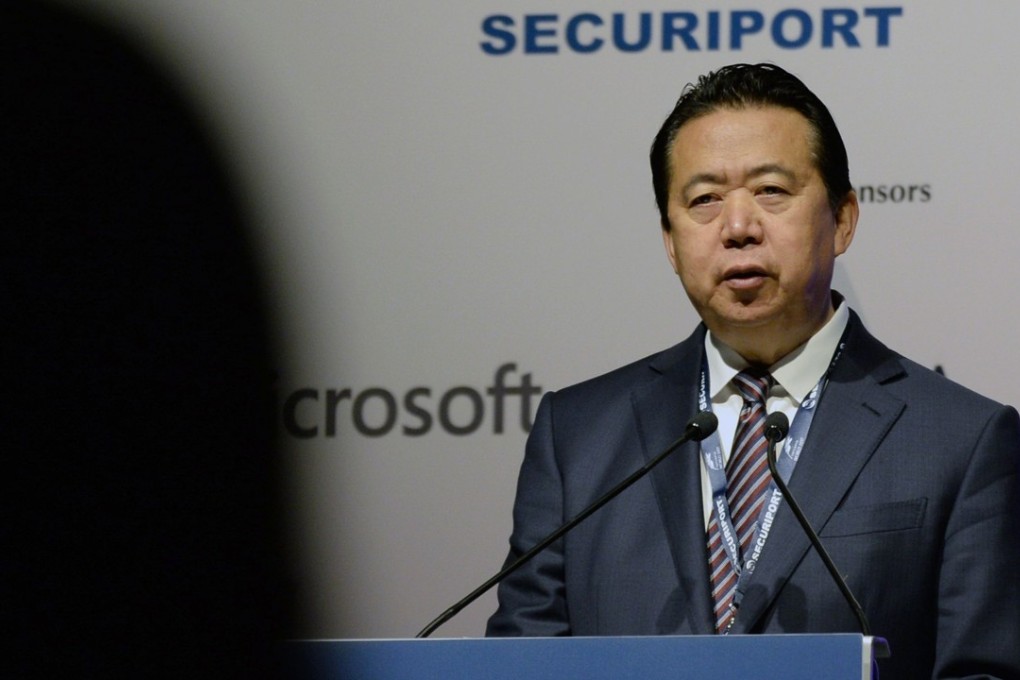Meng Hongwei case serves as a reminder
The detention in a bribery probe of the first Chinese to be president of Interpol underlines the importance of due diligence when appointing people to top jobs

The election of Beijing’s nominee Meng Hongwei in 2016 as president of Interpol – the first Chinese to hold the position – attracted understandable interest. If there was a discordant note, it came from human rights watchers who expressed fears China could use the position to hunt down dissidents and bring home officials who fled the mainland with ill-gotten gains. Ironically, the most wanted suspect has turned out to be Meng himself, one of China’s vice-ministers of public security. He disappeared on a visit to the mainland last month before authorities revealed that he was being investigated for taking bribes and the unspecified violation of laws that “gravely jeopardised” the Communist Party and police.
According to the Ministry of Public Security website, a task force is being formed to go after Meng’s associates and he has only his “insistence on doing things his way” to blame for his plight. Party discipline will be strictly enforced and its decisions obeyed. This sounds like a serious perversion of law enforcement in the midst of the ongoing anti-corruption campaign. It raises questions. Perhaps when more details emerge some will be answered, including whether Meng’s alleged crimes were committed during his presidency. If they predated it, did he pass appropriate vetting for such a sensitive, high-profile international post, if indeed it were done?
Whatever, consternation at the turn of events does nothing for China’s efforts to establish a leading role in global governance through offices such as Interpol president. But then Beijing would have known this and would have expected an incredulous reaction from the international community. The ministry website makes it clear that the interests of the party and enforcement of discipline come ahead of the risk of embarrassment or losing face on the public stage. In any event, it would have looked dubious if Meng had been taken down after serving his full term. Arguably his detention also reflects well on the assurance that no one is above the law, but it also comes at a cost to the confidence of international partners. It is a reminder of the importance of due diligence when putting people up for high-profile international roles, for which Chinese will increasingly be contenders.